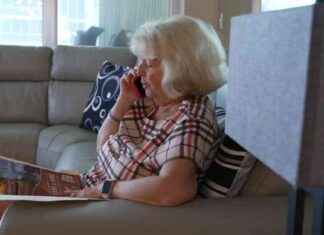In Paris, defeated the other Saturday in the Roland Garros final, Coco Gauff had sat on the bench and wept inconsolably while her helpless parents watched her from the box.
The child trembled and nibbled on the towel, shrinking, and on her cheeks, tears formed rivers.
And she looked tiny.
Attending the scene, a thought occurred to me:
–Didn’t the parents feel the unbearable need to go down to the track and comfort their girl, little more than a teenager (18)? Wasn’t their soul breaking?
Similar episodes abound: we refer to the harrowing image of a broken sportswoman, beaten down by the harshness of the adult world. One of them recorded it, for example, Kamila Valieva.
Valieva is the best figure skater in the world. And in February, at the Beijing 2022 Winter Games, she was looking for gold. And she was barely fifteen.
What happens is that days before disputing her individual final, the anti-doping agencies had pointed her finger and the world, too:
– Cheater! You compete doped, you consume trimetazidine!
And if the world is pointing the finger at you, and you’re barely fifteen years old, it’s normal for you to sink.
(and it is so even if international entities grant you a precautionary, a permit that temporarily allows you to compete)
So when Valieva clung to the precautionary and hoisted her blades to jump onto the track and search for her individual gold, it all fell apart: the girl landed on the ice a handful of times, overwhelmed by the hostile environment. . And fourth in the classification, tearful, Valieva left the stage, who knows until when.
“Adult life can be very unfair,” he managed to say.
We repeat: I was fifteen years old.
The thought that opened this story is legitimate, and would be shared by anyone who has prepubescent or already pubescent daughters, and also the International Skating Federation (ISU).
And so the ISU has said that what happened in Beijing in February should not be repeated. Not, at least, in your jurisdiction. And to avoid this, the age limit for an absolute competition has been raised: no fifteen-year-old girl will face the older ones. At a minimum, they must have reached 17.
“Why the decision? ISU President Jan Dijkema wondered: to protect the physical and mental health of skaters. And it’s a historic decision.”
And what situation is Valieva in now?
Well, waiting for the report written by the Russian Anti-Doping Agency (Rusada) and that will review her positive from December 25, registered in St. Petersburg, because we still do not know if Valieva doped conscientiously or if she had done it by mistake, by drinking from a glass of his sick grandfather, in whose liquid there was trimetazidine, medicine for angina pectoris.








